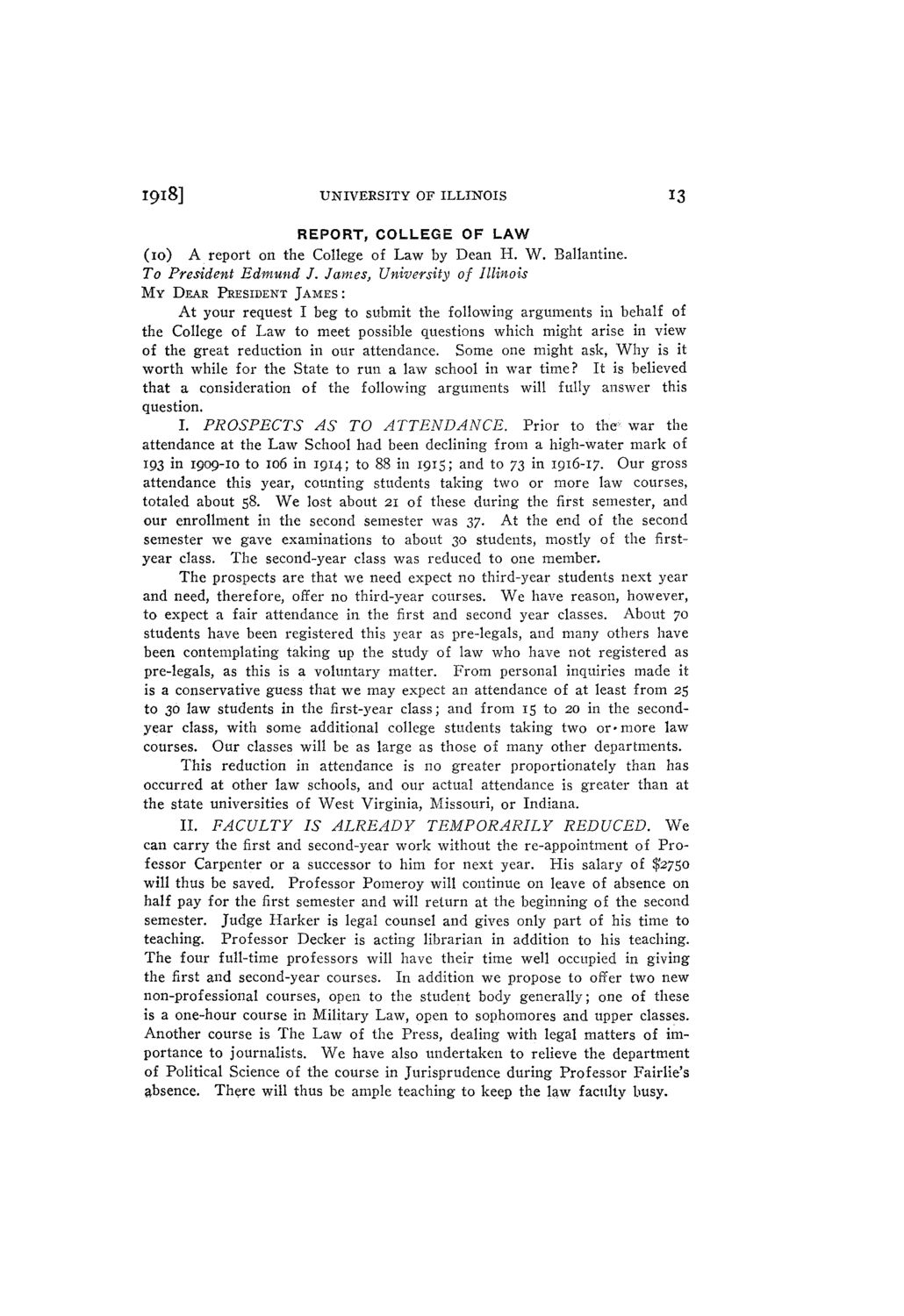| |
| |
Caption: Board of Trustees Minutes - 1920
This is a reduced-resolution page image for fast online browsing.

EXTRACTED TEXT FROM PAGE:
I9I8] UNIVERSITY OF ILLINOIS 13 REPORT, COLLEGE OF LAW (10) A report on the College of Law by Dean H . W . Ballantine. To President Edmund J. James, University of Illinois M Y DEAR PRESIDENT J A M E S : At your request I beg to submit the following arguments in behalf of the College of Law to meet possible questions which might arise in view of the great reduction in our attendance. Some one might ask, Why is it worth while for the State to run a law school in war time? It is believed that a consideration of the following arguments will fully answer this question. I. PROSPECTS AS TO ATTENDANCE. Prior to the war the attendance at the Law School had been declining from a high-water mark of 193 in 1909-10 to 106 in 1914; to 88 in 1915; and to 73 in 1916-17. Our gross attendance this year, counting students taking two or more law courses, totaled about 58. W e lost about 21 of these during the first semester, and our enrollment in the second semester was 37. At the end of the second semester we gave examinations to about 30 students, mostly of the firstyear class. The second-year class was reduced to one member. The prospects are that we need expect no third-year students next year and need, therefore, offer no third-year courses. W e have reason, however, to expect a fair attendance in the first and second year classes. About 70 students have been registered this year as pre-legals, and many others have been contemplating taking up the study of law who have not registered as pre-legals, as this is a voluntary matter. F r o m personal inquiries made it is a conservative guess that we may expect an attendance of at least from 25 to 30 law students in the first-year class; and from 15 to 20 in the secondyear class, with some additional college students taking two or* more law courses. Our classes will be as large as those of many other departments. This reduction in attendance is no greater proportionately than has occurred at other law schools, and our actual attendance is greater than at the state universities of West Virginia, Missouri, or Indiana. I I . FACULTY IS ALREADY TEMPORARILY REDUCED. We can carry the first and second-year work without the re-appointment of Professor Carpenter or a successor to him for next year. His salary of $2750 will thus be saved. Professor Pomeroy will continue on leave of absence on half pay for the first semester and will return at the beginning of the second semester. Judge H a r k e r is legal counsel and gives only part of his time to teaching. Professor Decker is acting librarian in addition to his teaching. The four full-time professors will have their time well occupied in giving the first and second-year courses. In addition we propose to offer two new non-professional courses, open to the student body generally; one of these is a one-hour course in Military Law, open to sophomores and upper classes. Another course is The Law of the Press, dealing with legal matters of importance to journalists. W e have also undertaken to relieve the department of Political Science of the course in Jurisprudence during Professor Fairlie's absence. There will thus be ample teaching to keep the law faculty busy.
| |